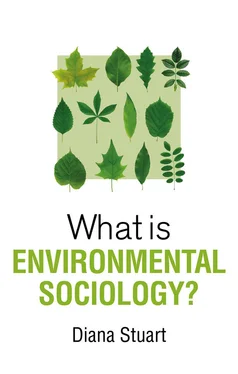What are theories? Theories are general explanations of how the world works or how processes unfold. For example, the theory of evolution explains how over time life evolved into diverse and specialized species across the globe. The theory of inheritance explains how the traits from one generation are passed on to the next. These are theories that have stood the test of time and are still widely believed to explain reality accurately. Other theories, however, have been found to be false and were replaced by others. For example, the flat earth theory was deemed false and superseded by the round earth theory. Maternal impression theory, which explained birth defects as a product of the pregnant mother’s thoughts, was also found to be false and replaced by genetic theory. Some theories offer explanations that hold, while others are eventually debunked, replaced, and disregarded. Theories are useful for multiple reasons: they can guide research questions, they can help to reveal specific patterns, and they can foster broader discussions that many scholars can contribute to over time.
In sociology, theories explain how society functions or how people act and relate to each other. Some theories explain how society works at a macro scale and focus on how the structures of social institutions, policies, and economic systems shape society. For example, Marxist theory posits that the mode of production, or how our economy is organized, creates a social order that results in specific class relations, power dynamics, and social and environmental outcomes. Other theories focus on individuals or groups of people and how they behave or interact with each other. For many years, social scientists debated whether it is the structure of our social order or choice and individual agency that most influence human behavior. Most scholars now agree that both are very important and that they are in many ways related. The ideas, beliefs, and choices of individuals are shaped and reinforced by the social order; and the ideas, beliefs, and actions of individuals are critical to either maintain or alter the social order.
While many theories from sociology have been applied or adapted to study the environment, new theories have also emerged specifically to examine nature-society relations. For example, the treadmill-of-production theory (Schnaiberg 1980), which will be further explained in Chapter 3, describes how increasing levels of production result in both more withdrawals from the environment and more additions into the environment, increasing levels of environmental degradation. Another example is ecological modernization theory, which will be discussed in more depth in Chapter 4. This theory explains how we can solve environmental problems using science, markets, and policy reforms to reshape relations in ways that adequately address environmental degradation and support economic growth (Mol and Spaargaren 2000). You may have noticed that these two theories are not complementary. These contrasting theories and related debates will be further examined in later chapters, as they continue to shape not only our understanding of the drivers of environmental impacts but also what solutions we should pursue.
A variety of different social science methods are used in environmental sociology. These include both quantitative and qualitative methods. Quantitative studies include examining survey and public opinion data to better understand attitudes, values, and beliefs. Surveys are also useful to understand behaviors. In addition, quantitative studies have looked at both social and biophysical data together to better understand correlations, drivers, and impacts. Quantitative work usually involves large data sets and statistical analysis, and has been used in some cases to test different social theories. Qualitative work in environmental sociology includes discourse or policy analysis, focus groups, and personal interviews to examine framing, influences, rationales, and justifications. While quantitative analysis might be better suited to understand what is happening and to what extent , as well as opinions, attitudes, and correlations, qualitative work is often needed to understand why people do or think what they do, and to expose influences that might otherwise be overlooked. Many publications in environmental sociology also focus on applications of theory to specific environmental issues; they may not use any primary data. All of this work contributes to a more comprehensive understanding of the impacts on, drivers of, and solutions to environmental issues. Throughout the book, specific studies will be highlighted along with the methods used to illustrate the range of research conducted.
It should also be noted that while rural sociology and the sociology of natural resources developed distinctively from environmental sociology, the differences in theory, approach, problems, and institutions define these subdisciplines rather than the locations and topics of case studies (Buttel 2000). Rural sociology has a long history of studying the relationships between people and rural places, including examining agriculture, recreation, and natural resources. While distinctive frameworks and theories initially guided rural sociology, increasingly theory and approaches from environmental sociology have also been applied to case studies. This makes the distinction between rural and environmental sociology increasingly blurry, but in a way that likely benefits scholars associated with each subdiscipline. Just because a case study is in a rural location or focuses on agriculture does not mean that theories from environmental sociology cannot be applied. In fact, an increasing number of scholars have demonstrated the benefits of such applications (e.g., Ipsen 2016, Houser et al. 2017, Ternes 2019).
Similarly, approaches from environmental sociology can be applied to studies that might be topically more associated with other subdisciplines. This includes science and technology studies (e.g., Lidskog and Sundqvist 2018), urban studies (e.g., Scanu 2015), migration (e.g., Ransan-Cooper 2016), and development (e.g., Givens et al. 2016, Westoby and Lyons 2016). Overall, the approaches from environmental sociology can be applied much more widely than the topics that were originally the focus of the subdiscipline. These approaches are also increasingly important in interdisciplinary work. There is growing recognition of the benefits of not only crossing the nature-society divide but also of being open to using theories, frameworks, and approaches from a variety of different social and natural science disciplines. As a result, interdisciplinary projects have received increasing levels of funding over the past few decades and will continue to be a vital part of environmental research. As we face escalating existential threats, the theories and methods used by environmental sociologists will be vital to interdisciplinary efforts to understand and address our environmental crisis.
Public Environmental Sociology in an Age of Crisis
Increasingly, environmental sociologists are participating in cutting-edge research and are publishing work with important social implications. Their research has illustrated how environmental impacts are unequally experienced, and elucidated the overlooked relationships between economic and environmental realities, the false promises of “silver bullet” environmental solutions, and how we can find environmental solutions that are the most effective and just. This work is not only published in prominent academic journals but is also highlighted in mainstream media outlets such as the New York Times . As we are in uncharted waters, facing increasing existential threats, this work is more important than ever.
This book introduces environmental sociology through focusing on recent work in the field and also through emphasizing public sociology . Public sociology goes beyond sociology for academic purposes and involves research that has important implications for society. For example, work highlighted in this book has important implications for identifying, understanding, and addressing our escalating environmental crisis, which is of increasing public concern. Public sociology can result in findings that garner widespread attention and are useful to policymakers, social movements, and others working to foster positive social change. Environmental sociologists continue to make significant contributions to public sociology, and diverse examples of public sociology will be emphasized throughout the book. While most of the examples and approaches in this book focus on scholars from the United States (US) and Europe, there is important work in environmental sociology happening across the globe and in the Global South, some of which will be highlighted in this book. The primary focus on the Global North is due to the accelerating levels of over-production and overconsumption in affluent nations that are primary drivers of our environmental crisis and therefore must be addressed.
Читать дальше












